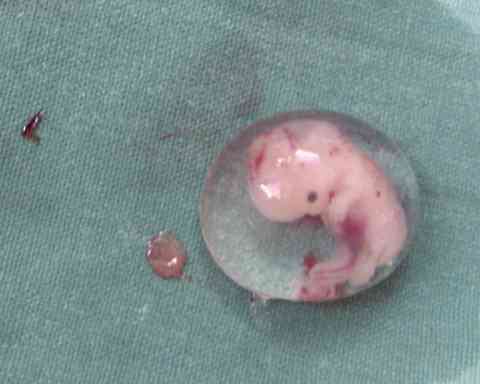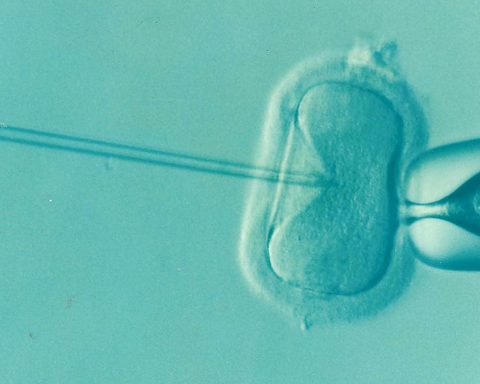Bioethics in Brief: Contraception and Natural Family Planning
Bioethics In Brief – Contraception And Natural Family PlanningContraception is the act of deliberately and intentionally rendering sex infertile, for the purpose of preventing procreation. Depending on the method of contraception used, this might take place ‘before, at the moment of, or after sexual intercourse’ (Humanae vitae, §14).
Common forms of contraception include barrier methods which prevent sperm from entering the woman’s cervix, hormonal contraception (often called ‘the pill’) which suppresses a woman’s fertility to prevent ovulation, and long-acting reversible contraceptives (LARC) such as an intrauterine device (IUD). The IUD releases copper into the womb which makes it more difficult for sperm to fertilise an egg, and for an embryo to implant in the womb.
Natural family planning (NFP), by contrast, refers to the use of a woman’s natural fertility awareness for the purpose of timing sexual intercourse. During each menstrual cycle, a woman has a fertile window of around 7-11 days, which is calculated by taking into account both when ovulation occurs as well as how long sperm can stay alive inside her body. During the rest of her cycle, conception occurring through intercourse is physiologically impossible. A couple practising NFP may choose to restrict intercourse only to infertile days in the woman’s cycle if they are avoiding pregnancy; if they are trying to achieve pregnancy they might use natural fertility awareness to ensure that intercourse takes place on fertile days.
Whereas older forms of predicting fertility, sometimes termed the ‘rhythm method’, often involved counting the days of a woman’s cycle and were unreliable due to differing lengths of cycles between women (or even for an individual woman), scientific advances in fertility awareness have made modern methods of NFP much more practicable and effective. Some of the most popular methods today include use of electronic devices that track change in the woman’s body temperature and which can thereby calculate the infertile period. Apps that work similarly are also readily available. Other methods are based on the discovery of cervical mucus as a natural biological marker of the different times in a woman’s cycle.
The Church teaches that contraception is wrong because contraception contradicts the ‘inseparable connection’ between ‘the unitive significance and the procreative significance’ inherent in the sexual act (Humanae vitae §12). This may seem like a mere technicality or even an arbitrary prohibition involving sex. However, it has to be understood in its wider context, which is marriage – and with that, the nuptial meaning of our bodies.
The Church sees marriage as woven into the fabric of our being by God, who created us. It is not an institution we invent, but a particular form of friendship arising naturally from our sexual complementarity. It is given to us by God to bring to perfection the two profound realities associated with the sexual complementarity between man and woman – the power of sexual intercourse to unite two persons intimately, and its potential for the generation of new life. These are two important goods in human life, but they are also challenging to live up to, for unitive love demands fidelity and exclusivity and procreation comes with the responsibility of nurturing one’s offspring. Therefore marriage has the character of permanence and exclusivity, for only in such a way can marriage provide a fitting place for these goods, to protect them and let them flourish in their fullness.
It is through the lens of marriage that we can come to a better understanding of the meaning of sexuality. The goods of unitive love and procreation are inseparable, and not to be treated as two discrete aspects of sexuality, because both are reflective of the particular character of marriage as a permanent and exclusive friendship. Rooted in these goods, marriage manifests itself as a call to the complete and mutual giving of oneself to one’s spouse, and to the living of a life of joint stewardship.
This call applies to all areas of a couple’s life and not just to sex, but sex holds a special place because it is not merely one activity among others or incidental to the marital relationship. It is constitutive of the meaning of marriage, and through marital intercourse a couple express with their bodies the spiritual meaning of marriage. For this reason, sexual intercourse must always retain its full significance and integrity, as both unitive and procreative, or else it no longer makes sense in relation to the marital friendship of husband and wife.
It often surprises people to learn that the Church has no moral opposition to the spacing of pregnancies when there is sufficiently serious reason to do so. The intention to avoid pregnancy for a time is not in itself wrong, and in the right circumstances may be a sign of responsible parenthood (Humanae vitae, §10). What is morally problematic about contraception is that it seeks to achieve this end via wrongful intention towards one’s marriage and one’s body. For contraception works by the deliberate sterilisation of bodily fertility, a sterilisation that itself dissolves real bodily communion between spouses in their one flesh union. When they will to sterilise their union they will against it as a reproductive-type union. Hence their will conflicts with the union that their bodies form – they deny with their minds what they express and actualise with their bodies. This conflict diminishes their marital union in a subtle yet real way. Part and parcel of the contracepted choice is also a choice against procreation and new life. So contracepted sex involves a will against both goods of marriage: the unitive and procreative.
By contrast, NFP involves no such conflict or diminishment. In choosing to have sex (to form one-flesh union) on infertile days the couple do not will to sterilise each other’s fertility and act against their reproductive-type union. And thus their minds do not conflict with the union they form with their bodies. Avoiding pregnancy is not immoral in itself; willing against one’s marital union is, as is willing to have sex in a way opposed to procreation.
How one’s will relates to goods available for choice matters for both one’s relationship to those goods and one’s moral character (virtue). So the Church’s teaching on contraception, based ultimately on Jesus’ teaching on marriage as a one flesh union (Matthew 19:5, Mark 10:8, Ephesians 5:31, Genesis 2:24), concerns the good of spouses’ marriage as well as their virtue. Marriages cannot flourish absent virtue, including the virtue of chastity (which involves self-control of one’s desires and emotions so that they are placed at the service of love of one’s spouse).
Although this question is frequently asked, it is not always clear what is meant by a ‘contraceptive mentality’. It is worth stating first of all that as a matter of fact, NFP could never become contraceptive in a literal sense, since it works by the avoidance of sex on certain days and by making use of the natural fertility cycle of the woman. There is no alteration of the sexual act for the purpose of avoiding pregnancy, which is what constitutes contraception.
That being said, it is certainly true that openness to new life is part of the meaning of marriage, and if a couple are avoiding pregnancy for an extended period of time this should be for serious reasons (Humanae vitae §10). What counts as a sufficiently serious reason will depend on the couple’s own circumstances and their ability to cope with the responsibilities involved in raising children – be it a matter of physical health, mental health, financial resources, or something else altogether. A couple in the process of forming a conscientious judgement on the matter ought to pray and dialogue together, as well as be attentive to relevant goods and teaching that bear upon the question before them.
Given this teaching of the Church, it may be that the decision to avoid having a child at this time is made for the wrong reasons and may indeed be one that is later regretted. In such a case the use of NFP would have been unwise (by way of being insufficiently attentive to the good of children) and perhaps lacking in trust or hope. In this sense it perhaps can be said that the couples’ use of NFP involved something like a ‘contraceptive mentality’.
One must keep in mind that ultimately NFP is, in and of itself, simply a method, both for achieving and for avoiding pregnancy through natural fertility awareness. The use of NFP in itself is no guarantee of any particular person’s intentions or virtuousness. Nonetheless, the use NFP for the avoidance of pregnancy does require a certain amount of discipline, for abstinence is key to its success. In this way, NFP can become a true school of virtue for married couples, for its use can help to foster self-mastery as well as communication between a couple, and also increase their intimacy through the search for other, non-sexual ways to express their marital love.
A realistic approach to NFP should be aware that the husband and wife may experience the infertile period differently, and that abstinence during this period may test the self-control, patience and kindness of the spouses differently. Growth through these challenges in certainly possible for Catholics but they must know that no one can grow in the theological virtue of charity without prayerfully submitting themselves to God’s Spirit and grace for help and strength.
Most recent
Bioethics in Brief: The Status of the Human Embryo
16 April 2022
Our ‘Bioethics in Brief’ on the Status of the Human Embryo.
Bioethics in Brief: IVF and Artificial Insemination
16 April 2022
Our ‘Bioethics in Brief’ on IVF and Artificial Insemination.
Support Us
The Anscombe Bioethics Centre is supported by the Catholic Church in England and Wales, Scotland, and Ireland, but has also always relied on donations from generous individuals, friends and benefactors.



